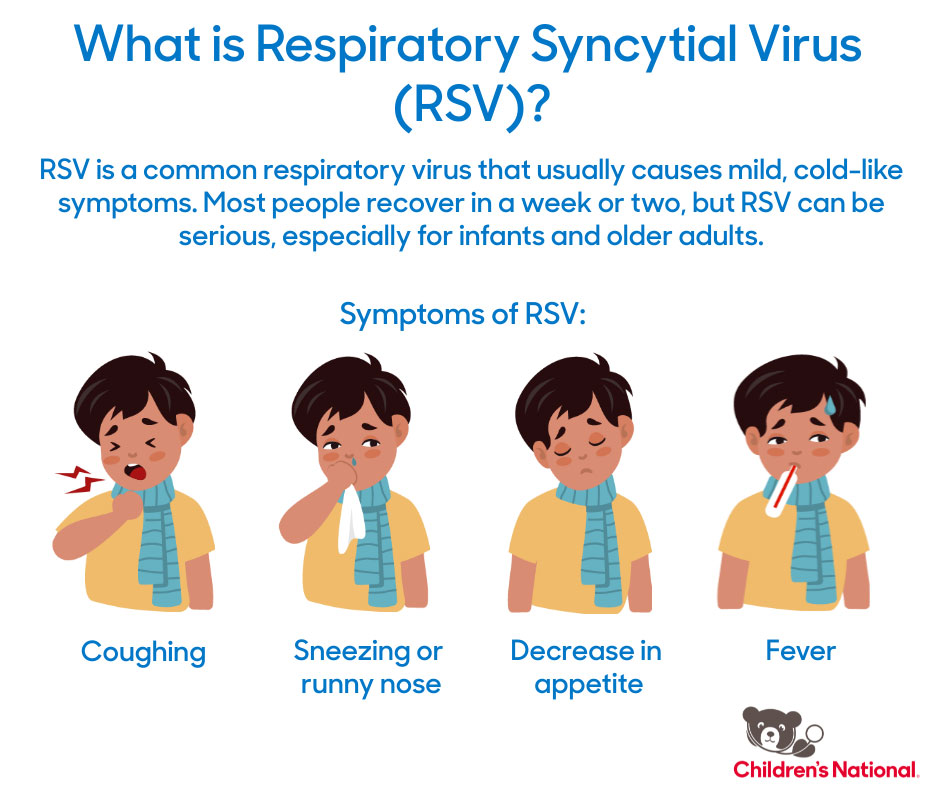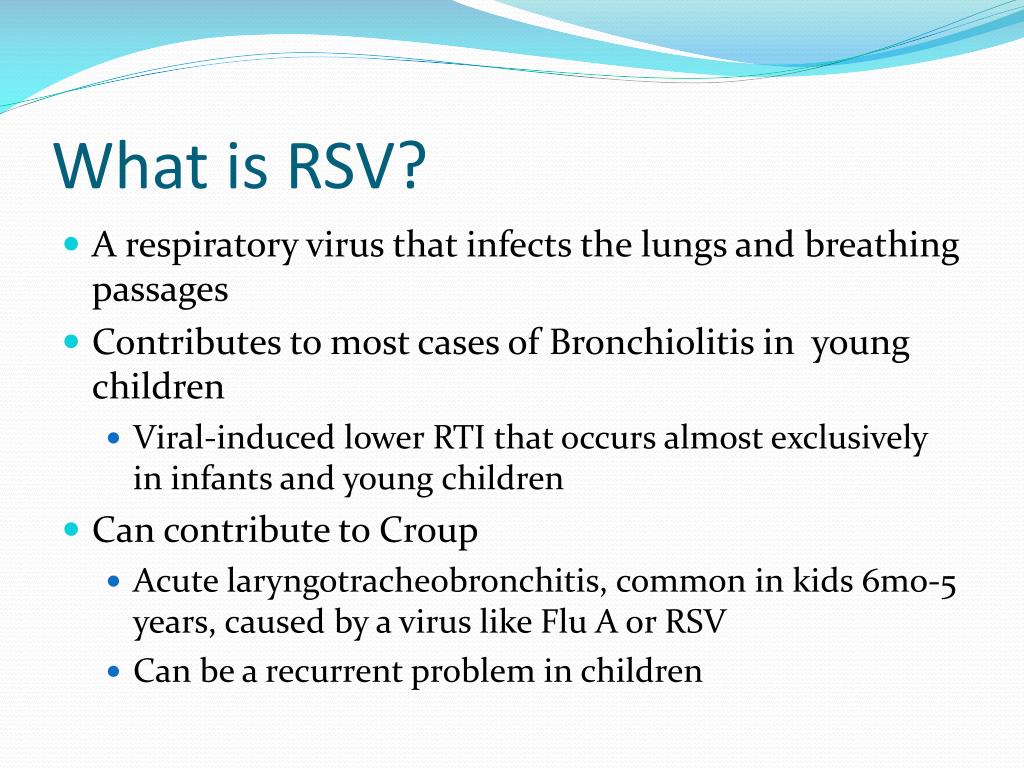What Is Rsv
Overview Symptoms Causes Risk factors Complications Prevention Overview Respiratory syncytial virus RSV causes infections of the lungs and respiratory tract It s so common that most children have been infected with the virus by age 2 Respiratory syncytial sin SISH ul virus can also infect adults RSV (respiratory syncytial virus) is a virus that can lead to a respiratory infection in babies, children and adults of all ages. An RSV infection usually causes a mild, cold-like illness that goes away in one to two weeks. But RSV can sometimes cause severe symptoms and lead to complications, especially in children under age 5, adults over age .

Respiratory syncytial virus infection RSV RSV in older adults and adults with chronic medical conditions Centers for Disease Control and Prevention https www cdc gov rsv high risk older adults html RSV is a common cause of respiratory hospitalization in infants, and reinfection remains common in later life though often with less severity. It is a notable pathogen in all age groups.

What Is Rsv
Lambert And Young Getty Key Takeaways For most children and adults the first signs of RSV are nasal congestion runny nose and sore throat RSV infections can last anywhere from five to 10 days from when symptoms start but days four and five tend to be the worst symptom wise Rsv skippack pharmacy. Rsv are you rsv aware efcniGet to know more about respiratory syncytial virus rsv in children.

Lower Respiratory Infections LRI And RSV VIGILINT

PPT RSV PowerPoint Presentation Free Download ID 6893359
Symptoms of RSV infection usually include Runny nose Decrease in appetite Coughing Sneezing Fever Wheezing These symptoms usually appear in stages and not all at once In very young infants with RSV the only symptoms may be irritability decreased activity and breathing difficulties Respiratory syncytial virus, commonly known as RSV, is a common respiratory infection that affects children and adults. Most children contract RSV before the age of 2. RSV is not usually a serious condition; however, high risk groups — especially infants — can develop serious cases and require a hospital visit.
RSV is the most common cause of bronchiolitis inflammation of the small airways in the lungs and pneumonia a lung infection in children younger than 1 in the United States Respiratory syncytial virus (RSV) is one of the many viruses that cause the common cold and infections in the upper parts of the respiratory tract. RSV also can cause infection in the lower respiratory tract, such as pneumonia in the lung tissue and bronchiolitis inside the smallest airways (bronchioles) in the lungs.